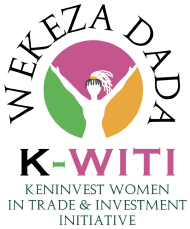Kenya’s Investment Promotion Efforts Secure The Support of UNDP & World Bank on FDI Attraction
NAIROBI, 17th NOVEMBER 2023… The United Nations Development Programme(UNDP), World Bank and Kenya Investment Authority (KenInvest) have today announced a new partnership to develop and implement an InvestmentFacilitation Framework and Foreign Direct Investment (FDI) Attraction Strategy. The framework is aimed at creating a transparent, predictable, efficient and trusted mechanism for effective investment facilitation. Speaking during launch of the partnership in Nairobi, Hon. Rebecca Miano, MBS the Cabinet Secretary for the Ministry of Investments, Trade and Industry(MITI), lauded the partnership arguing that it will make it easier for investors to invest, conduct their business and expand their operations in Kenya. She further added, that through the partnership Kenya will streamline procedures related to domestic and foreign investor attraction and also improve coordination and cooperation among actors in the investment cycle. The Minister lauded the role played by the National Investment Council (NIC)a body mandated with providing an overarching coordination mechanism to support the growth of investment in Kenya and for working tirelessly with the Secretariat to conceptualize the Investment Facilitation Framework. “We have set a target as a Country to attract Foreign Direct Investment (FDI)to a tune of USD 10Bn. To unlock Foreign Direct Investment (FDI) and position Kenya as a competitive investment destination, the National InvestmentCouncil through its Secretariat, Kenya Investment Authority has developed anInvestment Facilitation Framework with a view to creating a Transparent,Predictable, Efficient and Trusted Mechanism”, said, Hon. Rebecca Miano, CS,MITI. Through the partnership the Government will leverage on the UNDP’s global network to implement the framework as well as work with them as a project manager to support the key priority areas that including: Legislative and regulatory reforms to remove barriers to investment attraction; Investment Facilitation Framework, including design and operationalization of an Investor Facilitation Platform; and Institutional capacity development including organization review and development of a strategy to strengthen KenyaInvestment Authority. Speaking during the meeting, Mr. Anthony Ngororano, UNDP, ResidentRepresentative said, ‘as a key partner in Kenya’s development journey, we are gearing up for a collaboration with KenInvest. Together, we aim to remove barriers to investment and strengthen the investment facilitation journey.” “We shall support the Government through the Kenya Investment Authority to provide practical measures aimed at improving transparency and predictability on the investment climate in Kenya, said Ms. Elizabeth Elizabeth Kibaki-Obiero, Senior Private Sector Development Specialist, World Bank. The Cabinet Secretary further added that the Ministry is looking to review legal framework to anchor the organization “We are keen to review some of the laws and policies that have been overtaken by the changing times to make it easier for investors both foreign and domestic to tap the various business opportunities that we have across Kenya for both the benefit of our economyand the interests of the investors,” Miano said. Some of the legislations on investment promotion were enacted in 2004 and need to be aligned with the Constitution of 2010 that established the devolved system of governance and did away with local authorities. “We have kicked off the review of the Investment Promotion Act 2004 to align with the Constitution and to make it responsive to the dynamic nature of the globe as well as domestic investment environment that continues to present new challenges”, Miano added. On her part Ms June Chepkemei, Chief Executive Officer, Kenya InvestmentAuthority indicated that the partnership will be supported by a robust strategic plan under development.“ We have made progress with regard to our strategy development covering our next growth cycle of 2023/24 – 2027/28. This strategic plan, prepared under the theme of “Spearheading Equitable Investment-Led EconomicTransformation” ties in closely with our current focus areas as a government, and has been developed under four main pillars, namely, Targeted InvestmentPromotion, Harmonization of Investment Facilitation, Research & PolicyAdvocacy and Building of an Exemplary Investment Promotion Agency” saidJune Chepkemei, CEO, KenInvest. The Investment Facilitation Framework will be a great enabler for sustainable development by facilitating attraction and retention of Foreign DirectInvestments (FDI); enhancing the quality of FDI in the light of national strategies; growing Domestic Direct Investments (DDI); and enhancing international cooperation. See the Press Release








